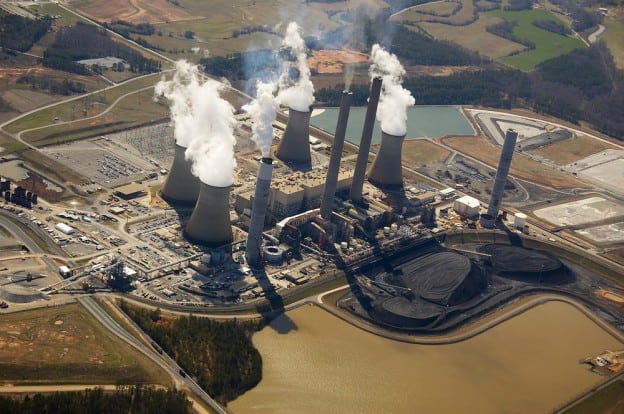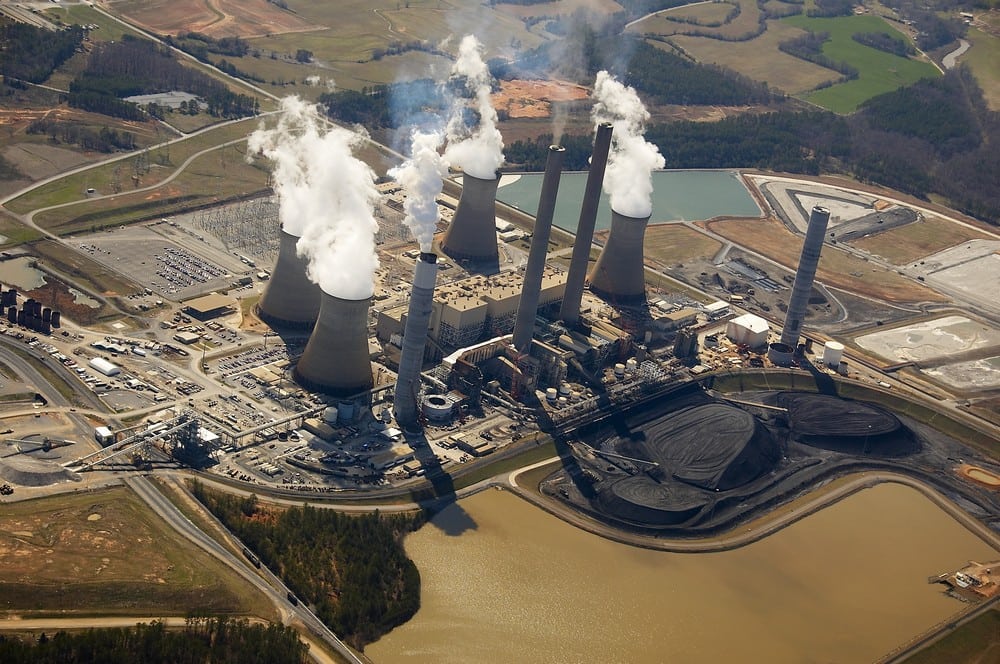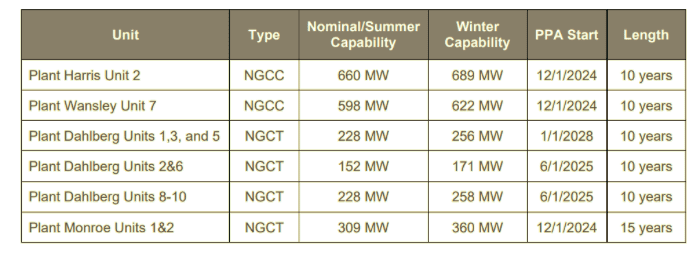
Georgia Power plans to shutter most of its coal fleet by 2028 and completely exit coal-fired power by 2035, according to the utility’s latest integrated resource plan (IRP) filed with state regulators on Jan. 31.
The Southern Co. subsidiary on Monday said it would make more investments in natural gas-fired generation, along with renewable energy, to make up for the lost coal-fired electricity output. The utility also plans to have two new reactors online at its Plant Vogtle nuclear power site, one by the end of this year and the other by mid-2023, that will add more than 2 GW of generation capacity to the company’s fleet.
Georgia Power CEO Chris Womack on Monday said environmental concerns and the current economic landscape of power generation factored into the company’s decisions. The utility files a new IRP with the Georgia Public Service Commission (PSC) every three years. Its previous IRP was approved in July 2019. Hearings will be held over the next few months to discuss the utility’s plan, with a vote by the PSC expected this summer.
Changing Customer Needs
“At Georgia Power, we know that to continue to meet the changing needs of our customers we must prepare now to build the electric system and energy infrastructure of the future,” said Chris Womack, chairman, president and CEO of Georgia Power. “We believe this IRP outlines how we will do that and how, working with the Georgia Public Service Commission, we will build upon the solid foundation we already have as the energy landscape continues to evolve. It demonstrates our commitment to making smart investments today, so that our customers can continue to have clean, safe, reliable and affordable energy for decades to come.”

Womack said environmental regulations that impact coal plants make those units “uneconomical,” while renewable resources, particularly solar power, continue to be competitive in the marketplace.
12 Coal Units Retired by 2028
Georgia Power in its filing said 12 coal-fired units, representing more than 3.5 GW of capacity, will be retired by 2028. That will leave Units 3 and 4 at the 3,450-MW Plant Bowen (Figure 1) as the utility’s only coal-fired generation source. The company said those units would be retired “no later than 2035.” The utility in November of last year had said it would close more than half its coal fleet in the coming years to meet net-zero carbon emissions targets.
The coal units set for retirement include Plant Wansley Units 1, 2, and 5A; Plant Boulevard Unit 1; Plant Bowen Units 1 and 2; Plant Gaston Units 1-4 and A, and Plant Scherer Unit 3.
The utility in a news release Monday also said it would “certify an additional 2,356 megawatts (MW) of capacity from natural gas power purchase agreements (PPAs), procured through the company’s 2022-2028 Capacity Request for Proposals (RFP) as well as significantly increase its renewable capacity.” That gas-fired capacity (Figure 2) includes PPAs for output from Plant Wansley Unit 7; Plant Monroe Units 1 and 2; and several units at Plant Dahlberg.

Georgia Power plans to nearly double its renewable energy generation capacity by adding 6 GW by 2035, putting its renewable portfolio at about 11.5 GW by that date. It also in the IRP requested approval to own and operate 1 GW of energy storage by 2030, including a request to own and operate the 265-MW McGrau Ford Battery Facility.
The McGrau Ford facility, located north of Atlanta in Cherokee County, would include a 2-hour lithium-ion battery interconnected at the McGrau Ford substation. Georgia Power said it has completed preliminary site development surveys for the location, including soil and environmental analyses, and said the facility could enter service by 2026.
Investments in Hydro
Georgia Power also said it would continue to invest in its hydropower plants, including Plants Burton, North Highlands and Sinclair, “to improve efficiencies in hydro system operations and help to ensure these units continue to provide clean and dispatchable carbon-free energy for another 40 years.”
“Providing customers with reliable service is at the center of our business and as we continue to transition our fleet and grow renewable energy that focus remains true,” said Womack. “Looking to Georgia’s future growth and energy needs, we know that new and emerging technologies have the potential to fundamentally alter the way energy is created, transported and ultimately consumed. That’s why a critical component of our fleet and grid transformation plan involves leveraging new technologies.”
The company said it would invest in the power grid “to make it smarter and more reliable.” The IRP details plans “to enhance the reliability and resilience of the state’s electrical grid system, including a multi-faceted approach developed to address future reliability needs associated with the retirement of coal units.”
Georgia Power also said long-duration energy storage, hydrogen, wind power, and distributed energy resources are “areas of potential investment.”
—Darrell Proctor is a senior associate editor for POWER (@POWERmagazine).
The post Georgia Power Plans to Retire All Coal Units by 2035 appeared first on POWER Magazine.